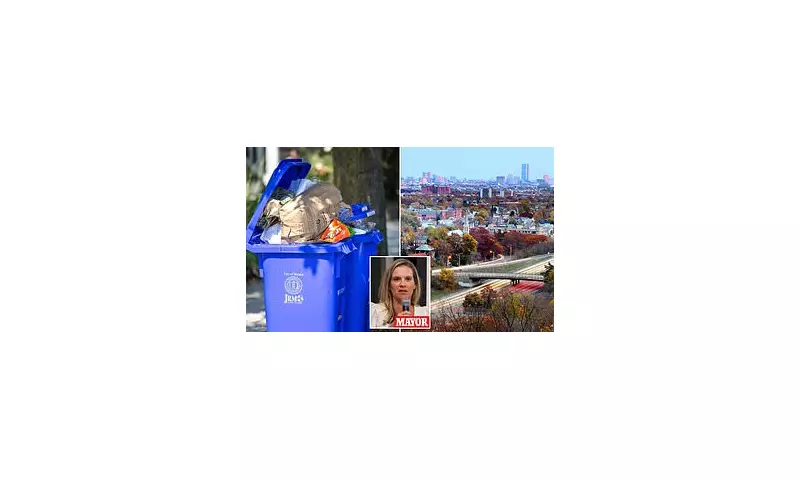
Outrage has erupted in a Boston suburb as local authorities consider controversial plans to collect residential rubbish just once every two weeks. The bi-weekly trash pickup scheme, scheduled to begin in Medford City as early as July next year, was announced alongside a $200,000 grant to support state 'Zero-Waste' initiatives.
Council's Zero-Waste Vision Meets Resident Resistance
Medford Mayor Breanna Lungo-Koehn declared in a November 13 press release: 'We made a commitment to Zero Waste in that plan and are making it easier for Medford residents and businesses to reduce, reuse and recycle materials to restore or renew value, eliminate waste and decrease pollution.' The new system would see 64-gallon residential trash carts collected every other week alongside recycling, completely free of charge, while reportedly saving the city approximately $1 million each year.
According to the official announcement, the new 'baseline for trash service' will equate to 32 gallons per household weekly. This revised threshold meets the Massachusetts Department of Environmental Protection's service volume requirements, making Medford eligible for the Pay As You Throw grant programme.
Resident Fury Over Practical Impacts
The proposal has triggered substantial backlash among locals, with many taking to social media to voice their concerns. One incensed resident posted: 'We have a right to weekly trash pick up based on the taxes we pay!! Oh, that's right, our city only votes for their own raises, expense accounts and personal assistants!!'
Another resident highlighted practical family concerns: 'Was there any consideration at all for how this impacts family household, not single households? Our family fills our barrel every week, and we do consciously recycle with our bin, we have a baby being born any day now and we will have additional trash with diapers etc. This is a horrible idea, the mice and rats are rampant enough as it is.'
Further criticism targeted the announcement's placement within the press release, with opponents accusing the council of 'burying' the contentious news. City Council President Zac Bears commented during a council meeting: 'We're not seeing any of the benchmarks that would lead us to believe that this is a good change. And I think to have not laid that groundwork … and the fact that this was not the lead of the press release … has rubbed a lot of people the wrong way.'
Composting Expansion and Overflow Solutions
The $200,000 grant represents Medford's second award from the department for waste reduction efforts, following a $105,000 grant last year that launched the city's residential weekly compost collection programme. Alicia Hunt, Medford's Director of Planning, Development and Sustainability, stated: 'Helping our residents compost is the right thing to do when it comes to sustainability, but we are actually being proactive and practical. Medford residents who are preventing food waste from going in the trash are already saving taxpayer dollars by reducing the City's trash disposal costs.'
Tim McGivern, Commissioner of Public Works, emphasised the economic benefits: 'Food waste is heavy and trash disposal costs will continue to rise. Our new collection contracts guarantee that every scrap of food we compost - instead of waste - saves the City money. This is important to folks to understand as we move to modernize our collection programmes.'
For households requiring additional capacity, the council outlined options including purchasing overflow bags or leasing extra 64-gallon trash and 96-gallon recycling carts. The contracted rates will be approximately $12 monthly per additional trash cart and $6 monthly per recycling cart when the PAYT programme launches, while weekly composting services will remain free.
However, these supplementary measures failed to appease many residents. One Facebook user responded: 'That is nuts! So, now I have to pay for another trash can and recycle can, because I have to have enough space to hold 2 weeks of trash. When will these people think about the people that actually live?'
The Massachusetts DEP aims to expand its food waste disposal ban to all state residents by November 2030, significantly pushing composting initiatives across the region as part of broader environmental sustainability efforts.





